
“The Matrix Revolutions” American Theatrical Poster
Director: The Wachowskis
Writer: The Wachowskis
Producer: Joel Silver
Cast: Keanu Reeves, Laurence Fishburne, Carrie-Anne Moss, Hugo Weaving, Nathaniel Lees, Jada Pinkett Smith, Harry J. Lennix, Harold Perrineau
Running Time: 129 min.
By Numskull
I was one of a relatively small group of people who was not disappointed with The Matrix Reloaded. As someone who was pleased but not awestruck by the first film, and as someone who doesn’t put a whole lot of stock in what other people say, I kept my expectations in check and chose not to be bothered by part two’s shortcomings; the overindulgence in slow motion, the crappy CGI shot of Trinity falling backwards while trading bullets with an Agent, the onslaught of information near the end after 100 or so easily digestible minutes, and so forth. Its purpose was to hold people over until the big, revelatory finale and to be the most balls-out, action-oriented film in the trilogy, and that suited me just fine.
The Matrix Revolutions is another matter. I am far from alone when I say that I’m not very happy with how this series has concluded. I didn’t expect to fall to my knees and thank God for being alive to witness some miracle of modern cinema, but I did expect the storyline to be given the sendoff it deserves.
Part of the reason for this, which can hardly be blamed on the orchestrators, is the unexpected continuity damage caused by the untimely death of Gloria Foster, who portrayed The Oracle quite memorably in the first two films. Another actress, Mary Alice, has been brought in to play the same character in a different “shell”. But Foster’s shoes are big ones to fill, and Alice doesn’t have the same sort of grandmotherly warmth we came to attach to The Oracle during the brief time we knew her. The real bitch of it is that she is more prominent now than ever before, and has considerably more screen time than in either of the preceding chapters. Other female characters Niobe and Zee also get more spotlight than before. The same cannot be said of Monica Bellucci and her eye-catching…ah, assets. More material with her and her husband, The Merovingian (Lambert Wilson)…whom, in Reloaded, I initially disliked but found amusing during subsequent viewings…would have been very welcome. Alas, Bellucci only has about two lines in the film (one for each…ah, asset).
I don’t imagine many people will have trouble following the basic plot here, unlike the first two movies. Whereas The Matrix gave viewers a few things to think about and Reloaded made viewers re-think those few things, Revolutions is little more than a great big The End. That’s not necessarily a complaint; I knew this was the final chapter, so to expect lots of earth-shattering twists would have been silly. No, what REALLY disappointed me was the action content, especially compared to the high-octane Reloaded. I don’t need to be told that there is more to these films than fighting, shooting, and blowing shit up, but let’s concentrate on those very things for the moment. Morpheus, Trinity and Seraph blasting their way into The Merovingian’s S&M club looks good but is of little consequence; for two of those characters it just feels too familiar, and there’s little reason to be too concerned about the third. Neo’s fight with Bane is nice and savage, but brief; the in-Matrix combatants, with their superhuman skill and endurance, have a way of sapping the intensity out of two guys just slugging the hell out of each other. The colossal battle of Zion, with its thousands upon thousands of machine invaders and its vastly outnumbered but incredibly valiant human defense force, is without question a masterpiece of special effects technology that will be regarded as THE sequence to beat by CGI teams for quite a while to come (or at least until Return of the King comes out, five weeks after this writing). However, an action scene that looks good isn’t worth much if it doesn’t FEEL good, too. For my part, I was not bored by it, or impatient for it to end, as I imagine others were. Nor was I entirely unmoved by the film’s attempts to get across the point that this battle is for nothing less than the survival of the human race. However, the scene is very repetitive, and the sheer amount of stuff going on as the focus shifts from the battlefield to Lock in the command room to Zee and her buddy to “The Kid” on reload duty to Niobe and Morpheus racing towards Zion and back again, made me yearn for something as calm and restrained as a 14-minute freeway chase. I don’t think this is a failing of the film; the siege is, at the end of the day, a spectacular sequence. But personally, I believe the best action pieces lie elsewhere.
“Elsewhere” sure as hell does not include the climax of Revolutions, though, as the inevitable duel between Agent Smith (just one of him) and Neo was disappointing beyond verbal description.
You’ve seen the preview. It’s raining heavily. Agent Smith clones line both sides of the street. It’s dramatic as hell.
Neo charges his opponent.
Agent Smith does the same.
They swing at each other.
And off they go!…
…for about 30 seconds.
From there, the heavily built-up sequence becomes an immensely uninvolving mess of flying around, big globes of water, dialogue which, at this point, almost nobody wants to hear, and more flying around. It’s a live-action anime fight, as others have said, and where that may be a selling point to some, it pisses me off something fierce. Call me old-fashioned, but I say that when it is promised that two guys are going to fight, they should actually…you know…FIGHT. The amount of time that these characters spend trading and dodging blows is minuscule compared to the amount of time they spend showing off the FX budget. By the time it reached the slow-mo shot of Keanu Reeves’s very wet fist connecting with Hugo Weaving’s very pliable face, I was too soured on the whole thing to really enjoy it.
At the end of this scene, there is a revelation of sorts. It wants you to say: “THAT’S it!” But, after the groan-inducing showdown between Neo and Smith, you’re more likely to say: “That’s IT?”
Believe in Jesus? If not, you’re more likely to disagree with me when I say that The Matrix Revolutions doesn’t have a “fairy tale” ending. Although the trilogy is brought to a close, the door is left open for additional material due to the issues raised by the wrap-up. Will certain promises be kept? Will The Matrix, as we have known it since the first film, continue to function in its current state? Will human beings continue to be used as batteries? Will the Wachowskis, ten years and a sex change operation down the road, find themselves strapped for cash and start sniffing around Joel Silver’s A-list crotch for a fourth film?
These questions, to me, are more annoying than those raised by Reloaded. (Examples: “Why does a ship have to leave Zion for someone to jack into The Matrix?” “Why doesn’t Neo just fly away from all the Smiths?” “What the fuck is this shit?”) Furthermore, there are some plot elements which aren’t resolved satisfactorily. By riding the “this is SO cool!” hype following the first Matrix film, and by injecting so much philosophical and spiritual flavor into the series, the Wachowskis have pretty much written themselves a license to get away with whatever they please in The Matrix Revolutions, assuming, perhaps, that you will A) just go with it, B) assume that it’s way over your head, or C) spend your every waking hour analyzing and discussing it, at which point The Matrix will truly have you.
So…does the mega-budget, trend-setting sci-fi trilogy conclude not with a bang but a whimper? Not quite. The Matrix Revolutions is a letdown, but not a catastrophe. I was disappointed, but not disgusted. For my money, this is the worst movie of the three, but there is still good filmmaking here, certainly several steps above many other Hollywood action hack jobs. All kidding aside, I don’t think the Wachowskis will ever find themselves unable to find employment in the industry, and I definitely believe that Hugo Weaving’s performance as Agent Smith warrants a high profile spot in the Really Cool Movie Bad Guys Hall of Fame.
Well, I’m off to watch the “Swarm of Smiths” fight in Reloaded (I refuse to call it “The Burly Brawl”; do the people who refer to it as such even know what “burly” means?) again.
If nothing else: thank you, Andy and Larry, for the one thing about this series I’ll always love.
Numskull’s Rating: 6/10
By Owlman
All this talk about box-office receipts makes me nauseous. Recent returns on the opening weekend for The Matrix Revolutions are lower than those for the first two installments in the trilogy. On top of that, many critics are blasting the final story as a waste of time, too much style over substance, and too unreal (my personal favorite).
I am not cut of the same cloth as these critics. While I fancy myself at times as a fairly diverse consumer of all that is film entertainment, I also realize that I love mindless, stylish, and out-of-this-world stories as much as thoughtful, subdued, and slice-of-life stories.
The Matrix trilogy presents an interesting case. I thoroughly enjoyed the first of the trilogy and found it to be magical in its presentation. Even though I realized that much of its influence came from a good deal of Asian films that I’d seen over the years, the underlying story really did come through to me and provided a lot of fodder for forum discussions.
When Reloaded was released, I watched it with anticipation mixed with hesitation. Anticipation in seeing what more could be gleaned from such a complex back story – hesitation in knowing that sequels don’t usually fare too well in the quality department.
As forum readers know, I had originally blasted Reloaded as an inferior sequel to the first film and called it such things as “loud”, “mindless”, and “ridiculous” obvious signs that the original hesitation took over my mind as I watched the movie. Later on, after viewing it for a second time, I revised my comments and gave it a more positive reception.
Why did that happen? While watching it a second time, it occurred to me that my first impression of Reloaded was focussed only on the visual aspects of the film. On that narrow focus, all I could see was the technical execution of the film and, as a result, I overlooked the depth of the dialogue and backing story. With a second viewing, it allowed me to see that there really was much more than the explosions, gunplay, and kung-fu. Case in point the Architect’s complex dialogue with Neo. I totally missed out on his delivery at first but caught on during my second viewing.
Coming to Revolutions, I went in to the cinema yesterday ready to focus on the story, having been worked up at the questions presented during Reloaded. Instead, I was entranced by the technical marvel of the film the gun battle at the Hell Club and the attack of the machines on Zion. The former scene reminded me of the lobby scene from the first film while the latter was simply a big-ass assault on the senses like any good battle scene should be.
Dialogue really did take a backseat this time around but not to its detriment. Questions from Reloaded were more-or-less answered in Revolutions by the usual talkative suspects (Oracle and, in a final cameo, the Architect). Hugo Weaving, reprising his role as Agent Smith, had the best lines throughout the movie. Plus, in what turned out to be a great impersonation, Ian Bliss (the Smith-possessed Bane) delivered his lines in an Agent Smith persona, mimicking Mr. Weaving’s pointed delivery to full effect.
Crap in the movie was limited only to Trinity’s final dialogue with Neo. Granted, the character was knocking on death’s door but, man, those lines were too Celine Dion for me.
Now, I could probably crap all over the final battle between Neo and Smith but I won’t. I liked it and it got me all nostalgic for the battle between Superman and Zod in Superman II. Yes, it was probably over-the-top in its delivery but, c’mon, we’re talking about super-powered beings in a laws-of-physics-be-damned fight to the finish. It’s supposed to be over-the-top and I don’t care who says otherwise.
Anyway, to wrap things up, you’re either going to love this film or hate it. Like Reloaded, it doesn’t have as much magic to it as the first film but it’s not mindless entertainment. It’s guaranteed to generate plenty of discussion in forums all over the web, whether it be about the action or about the complexities of the story. Either way, any movie that can get people talking about it at length can’t be all that bad.
One final note: in answer to the inevitable comparison to Star Wars, I would like to point out this Star Wars (the original trilogy) based a lot of its appeal on its mythical storytelling. Fanboys could go on and on talking about myths and legends implied during the course of the movies (only to have them ruined by the prequels). The appeal of the Matrix trilogy is based more on the philosophical undertones to its storyline. In this case, fanboys could discuss ad nauseum about possibilities based on philosophical and even theological parallels.
Owlman’s Rating: 9/10
By Equinox21
The Matrix Revolutions picks up right where Reloaded leaves off, essentially making it one big movie split right down the center. However, as Reloaded explained most of the situation, Revolutions shows its “inevitable” resolution. That said, I think Revolutions was better than Reloaded, since we finally get to see what the Wachowski’s had in mind all along.
********* MAJOR SPOILERS FOR REMAINDER OF REVIEW *********
The plot is pretty simple. On the Hammer, Neo’s not actually in a coma, he’s actually “jacked in”. But, he’s in an area that’s in between the real world and the Matrix. But he’s stuck until the Merovingian decides to let him go, since he controls the passage out. So, Trinity and Morpheus go into the Matrix and meet with Seraph in an attempt to persuade the Merovingian to let him go. They’re successful and they get Neo out (after he’s had another chance to talk with the Oracle). The Hammer then meets up with Niobi’s hovercraft, the Logos. After a quick analysis of their situation, Neo and Trinity take the Logos, to get to the heart of the Machine City, and all the rest of the people take the Hammer in what might be considered a futile attempt to get back to Zion. Does the Hammer make it back to Zion in one piece? Do Neo and Trinity make it to the Machine City without becoming lunch meat? Can Smith be beaten? Tune in next week, same Bat time, same Bat channel.
Well, I loved this one. I loved the Mechs taking on the Sentinels in Zion’s Dock. It was as epic as any sci-fi film I’ve ever seen. One shot in particular astounded me, that was when the Sentinels were first starting to emerge from the hole they created in the ceiling of the Dock and EVERY MECH was firing at the openingÉ We’re treated to a wide shot showing tracer fire coming from every direction focused on that one spot and countless destroyed Sentinels falling out of the air. It was classic! Of course, that only lasted a short while before it turned into one giant SNAFU, and the Dock was lost. But the Hammer makes it back just in time to fire off their EMP, thus stopping the wave of Machines. But, it wasn’t enough. At that point only one thing could help them. Neo.
I loved that when people thought that going to the Machine City would be a suicide mission, they were RIGHT. Instead of simply letting the heroes escape at the end of the final confrontation, they died in the process of getting to that point. It’s more believable. It also shows a lot of the Asian cinema influence in the Wachowski’s decision to kill off two of the main characters, albeit in a heroic way. Thankfully, they didn’t use the “Nowhere to Hide” homage as the only major influence from Korean films, but also the fact that in nearly half of all Korean films the protagonist sacrifices him/herself at the end of the film. It’s the same thing here. Neo saves Zion by sacrificing himself.
This brings me to the final confrontation between Neo and Smith. Smith has grown more and more powerful since the beginning of Reloaded. Basically, he’s Neo’s opposite, because Neo “entered” him at the end of The Matrix in order to destroy him from the inside out. However, this didn’t actually destroy him, but instead gave Smith many of Neo’s own abilities, and then some. So, at the end of the fight between Smith and Neo, Neo has to let Smith “take over” his body (i.e., replicate himself in Neo), so that the Deus Ex Machina (the main entity that controls the Matrix) can destroy Smith in Neo’s body, thus learning how to do it, so it can then use that info to destroy every incarnation and copy of Smith in the Matrix. It works and Smith is destroyed, but at the cost of Neo’s life. I loved that Neo took over Smith to destroy him in the first movie, and had to let Smith take over him in order to destroy him in the last movie. Perfect!
The one thing about the movie I didn’t like is that during the final Neo/Smith rumble, there was still too much annoying CGI. There was lots of Anime inspiration, with superpowers abound and lots of flying around, but it seemed almost goofy in a live-action movie. I can believe it in an Anime, but it’s hard to swallow in a live-action movie, even though it did take place inside the Matrix, where that type of thing would be possible. It was still somehow strange. But, I overlooked that and enjoyed the finale.
Finally, there’s peace between Man and Machine. I think those who liked Reloaded will like Revolutions, and those that hated Reloaded will probably not like Revolutions all that much more. But, as I’m a sci-fi geek, I loved all 3 Matrix movies and wouldn’t want them any other way. Excellent work, Wachowski’s.
Equinox21’s Rating: 10/10

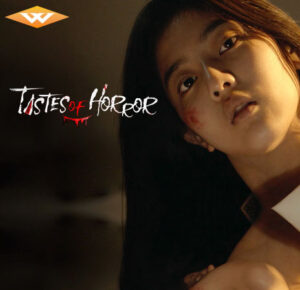

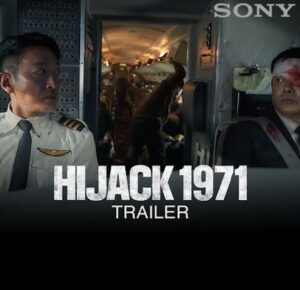
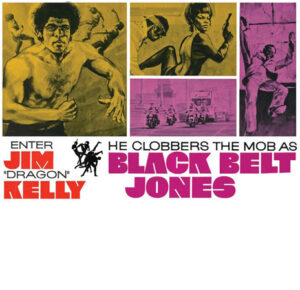
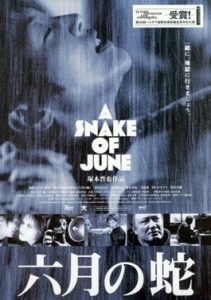











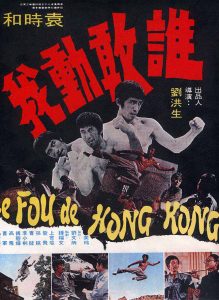






Be the 1st to Comment